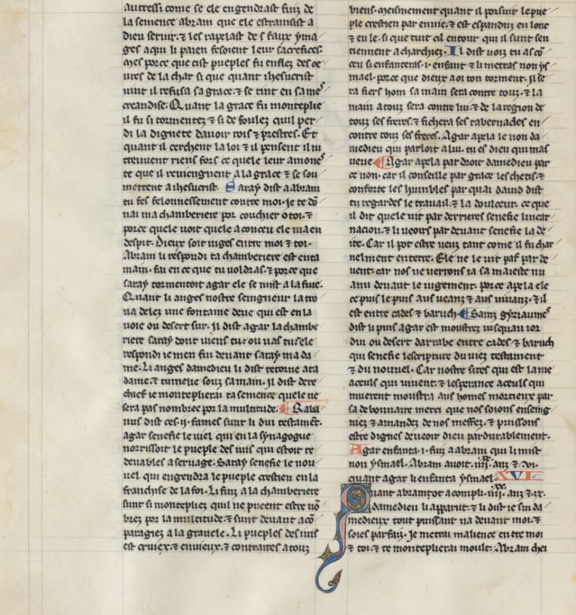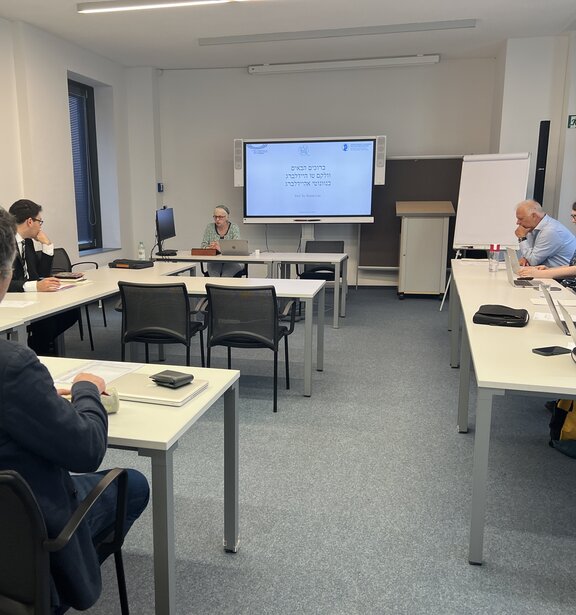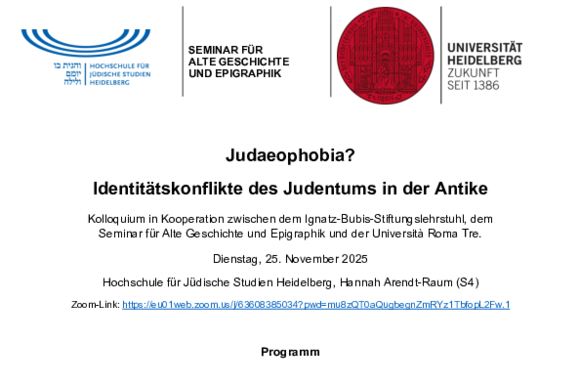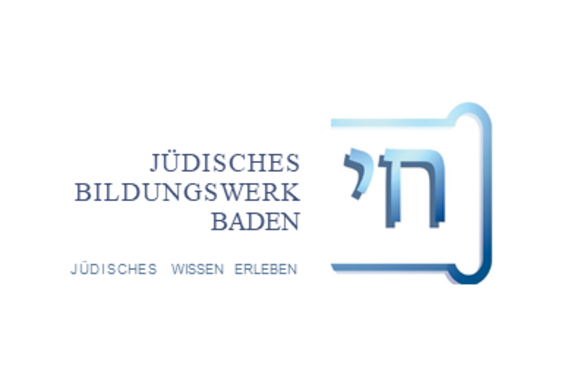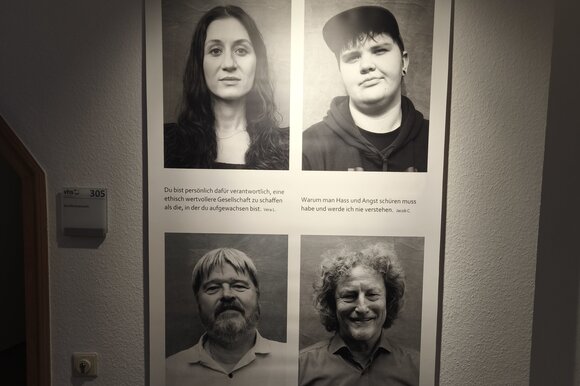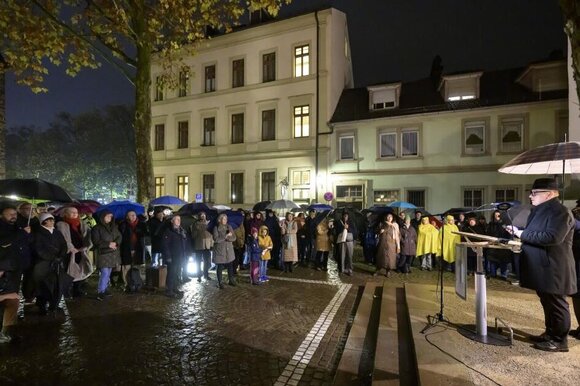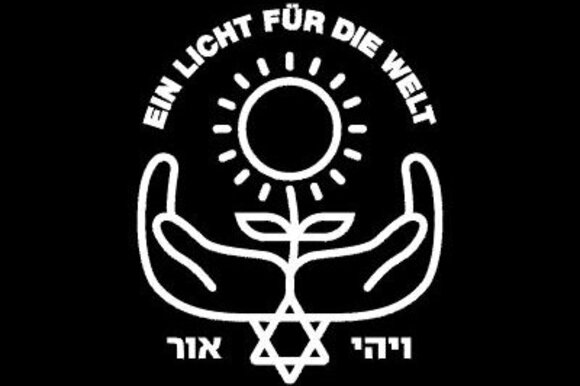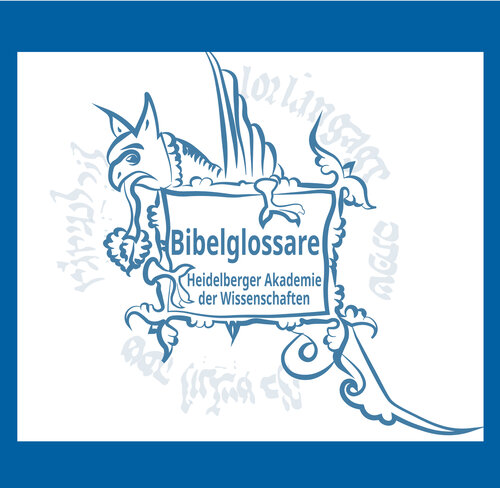Connecting the past with the present
He was "almost electrified" when Mr. Kapustin announced himself, said Professor Heil at the beginning of last Tuesday's event. As part of Professor Heil's overview lecture "Jewish History of Antiquity - What Josephus Knew", Samuel Kapustin gave a lecture about his late father, the former Ladenburg rabbi Dr. Max Kapustin, among other things. Kapustin began by describing how his parents fled to the USA after their marriage in 1938 to Danville, Virginia, the birthplace of Samuel Kapustin and his now deceased brother Daniel. Ten years later, they decided to move to Detroit because of the large Jewish community. Max Kapustin worked there until his retirement as director of the Hillel Foundation at Wayne State University, as well as a professor in the Department of German and Middle Eastern Studies and held numerous positions in the Jewish community.
for 38 years, Samuel Kapustin taught and supervised Jewish history and Jewish philosophy at a Jewish high school in Toronto. He addressed many of the topics he was confronted with during this time in his lecture.
For example, he asked the question he was often asked about the purpose of teaching and learning history, especially in light of the growing presence of STEM subjects. Here he recalled a statement made by a family member who first asked Kapustin about his profession and then remarked that the latter did not have much value. According to Kapustin, his relative was unfortunately not alone in this opinion.
History, according to North American curricula, reveals where we come from and who we are. It teaches us the important skill of connecting the past to the present, and most importantly, it strengthens our identity and fosters empathy. Although these goals are important, Kapustin emphasized that they must also be present in the minds of teachers and students. History lessons today are often taught without a conscious goal. History and its teaching, he continued, have been used time and again to destabilize democracy. While we are certainly familiar with this phenomenon from regimes of the past, this deliberate misrepresentation of historical events is now also occurring in democracies that were considered "immune to such incidents of historical abuse".
Kapustin advocated an educational approach in which the classroom should be an environment full of challenges, such as critical thinking, thoughtful evaluation and the exchange of opposing views, which students should reject but not "ignore or dismiss". The focus of historical research is not just the facts and events themselves, but rather the reasons behind them. In addition, historical thinking differs from the natural sciences in that the former often requires an emotional connotation of past events to be explored. All these aspects together make the study of history very complex. He concluded by noting that the past cannot speak meaningfully to the present if we are not prepared to meet it at eye level and that it was topics such as these that were close to his father's heart and which he dealt with throughout his career.
In a subsequent interview, Kapustin went into more detail about some aspects of his lecture. He had previously mentioned that two fundamental principles had prevailed in his parents' home that are not found in this form in many other families, especially not in this day and age: learning for learning's sake and being involved in the Jewish community. These principles served as a role model for him and determined, initially subconsciously, what he would focus on later. In particular, they also reflected his later approach of considering and teaching Jewish studies and general studies together.
Kapustin gained his personal motivation to teach primarily through two teachers, as one familiarized him with topics of world history and he learned to particularly appreciate the use of primary sources in the second teacher's lessons. With regard to the instrumentalization of the teaching of history mentioned in the lecture, he remarked that history was almost doomed to be misinterpreted for ideological and political purposes. He emphasized a certain responsibility on the part of the students to recognize this.
He also emphasized his father's principle of reaching out to people from diverse religious backgrounds and professions as extraordinary, as this resulted in a kaleidoscope of people from different backgrounds and ideologies coming in and out of his parents' home in a steady stream.
Although he does not see himself as a kind of "spokesperson" for his deceased father, he always carries his approach with him in spirit.
(Editor: Annalena Bauer)
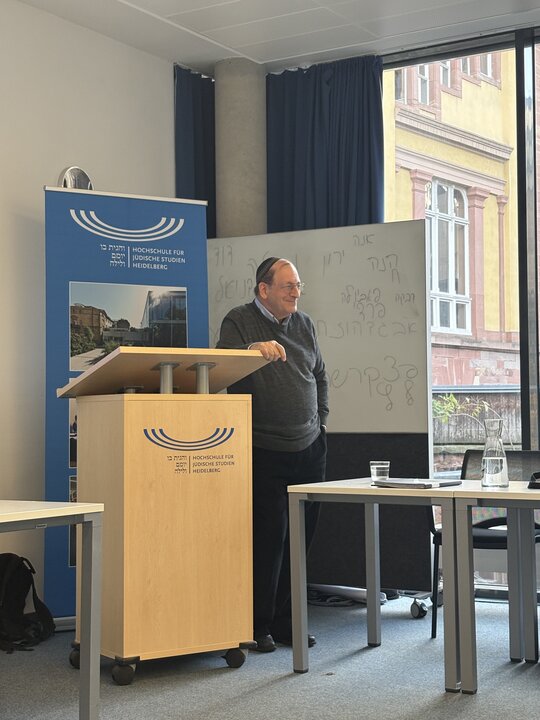
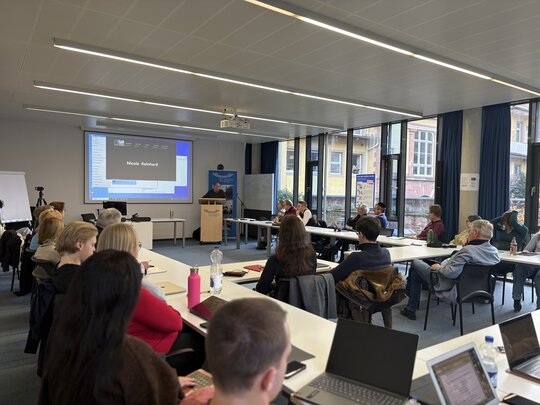
-
Date 20 November 2025
-
Time 12:31 UTC+01:00
-
Participation
-
Language
-
Contact
-
Location
-
Registration? No

